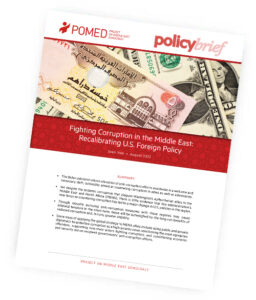Anti-government protests in southern Syria have stretched into a second week, with demonstrators waving the colorful flag of the minority Druze community, burning banners of President Bashar Assad’s government and at one point raiding several offices of his ruling party, FRANCE24 reports (above). The protests were initially driven by surging inflation and the war-torn country’s spiraling economy but quickly shifted focus, with marchers calling for the fall of the Assad government.
Fuel subsidy cuts provided “the spark for the uprising,” said Rayan Maarouf, the exiled editor-in-chief of local media collective Suwayda24. “But people came out into the streets not calling for this decision to be reversed. They came out into the street to call for the fall of the regime because they realized that the situation won’t change without a change to the political situation,” he told The Times.
 The protests “come at a particularly dynamic time and serve to underline just how vulnerable and unsustainable Assad’s rule has become,” said Charles Lister, director of the Syria program at the Middle East Institute in Washington, DC. While the president has for years relied on the support or neutrality of Syria’s minorities, the fact that the Druze of Suwayda are leading the protest movement now indicates “an acute threat” for the regime, he told CNN:
The protests “come at a particularly dynamic time and serve to underline just how vulnerable and unsustainable Assad’s rule has become,” said Charles Lister, director of the Syria program at the Middle East Institute in Washington, DC. While the president has for years relied on the support or neutrality of Syria’s minorities, the fact that the Druze of Suwayda are leading the protest movement now indicates “an acute threat” for the regime, he told CNN:
The UN has said that more than 300,000 civilians have been killed since the conflict broke out, some 1.5% of Syria’s pre-war population. Millions of others have been displaced. Despite efforts to hold Assad accountable for the losses, in May he was welcomed back into the Arab fold in a move opposed by Western states and many of the refugees who fled persecution under his rule.
“Four months on, the concerted regional re-engagement with the regime can only be said to have destabilized Syria, and considerably worsened living conditions for those inside the country,” Lister told CNN.
 Over the past decade, Sweida had largely isolated itself from Syria’s uprising-turned-conflict. The province witnessed sporadic protests decrying corruption and the country’s economic backslide. This time, crowds quickly swelled into the hundreds, calling out political repression by Assad’s government and stirring echoes of the protests that rocked the country in 2011, The Associated Press reports.
Over the past decade, Sweida had largely isolated itself from Syria’s uprising-turned-conflict. The province witnessed sporadic protests decrying corruption and the country’s economic backslide. This time, crowds quickly swelled into the hundreds, calling out political repression by Assad’s government and stirring echoes of the protests that rocked the country in 2011, The Associated Press reports.
“People have reached a point where they can no longer withstand the situation,” said Suwayda24’s Maarouf. “Everything is crumbling.”
The protests show Assad’s efforts at control have done little to quell public anger, even in government-held areas, he told The Guardian. “People want a fair government, and al-Assad’s regime is incapable of giving his people that. Whatever this regime does it won’t be enough for his people.”
 “The world thinks that Bashar al-Assad has won after being readmitted to the Arab League, but it’s those on the ground who decide whether he’s a legitimate ruler or not.”
“The world thinks that Bashar al-Assad has won after being readmitted to the Arab League, but it’s those on the ground who decide whether he’s a legitimate ruler or not.”
The Assads of Syria, the clerical elites of Iran, the military rulers of Egypt, and the rotating governments of Iraq and Lebanon have profited richly from corruption, analyst Sean Yom writes in a new POMED policy brief.
All MENA countries except Syria are parties to the United Nations Convention Against Corruption (UNCAC)—the only legally binding international covenant against corruption, he adds.
Anti-government protests in Syria spurred by economic crisis and inflation. https://t.co/z4nEAY7Spk via @YouTube
— Democracy Digest (@demdigest) August 31, 2023







